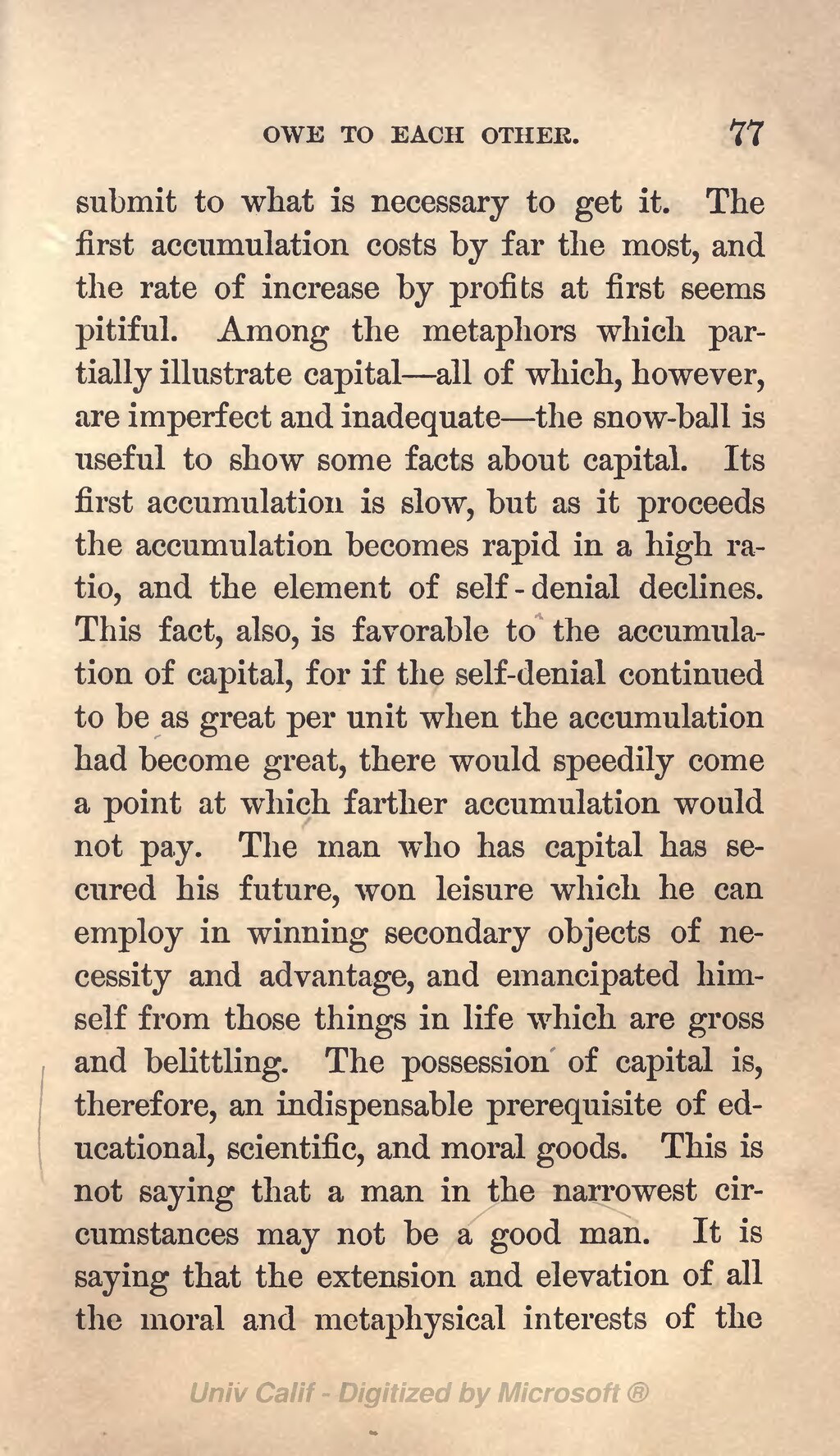submit to what is necessary to get it. The first accumulation costs by far the most, and the rate of increase by profits at first seems pitiful. Among the metaphors which partially illustrate capital—all of which, however, are imperfect and inadequate—the snow-ball is useful to show some facts about capital. Its first accumulation is slow, but as it proceeds the accumulation becomes rapid in a high ratio, and the element of self-denial declines. This fact, also, is favorable to the accumulation of capital, for if the self-denial continued to be as great per unit when the accumulation had become great, there would speedily come a point at which further accumulation would not pay. The man who has capital has secured his future, won leisure which he can employ in winning secondary objects of necessity and advantage, and emancipated himself from those things in life which are gross and belittling. The possession of capital is, therefore, an indispensable prerequisite of educational, scientific, and moral goods. This is not saying that a man in the narrowest circumstances may not be a good man. It is saying that the extension and elevation of all the moral and metaphysical interests of the
